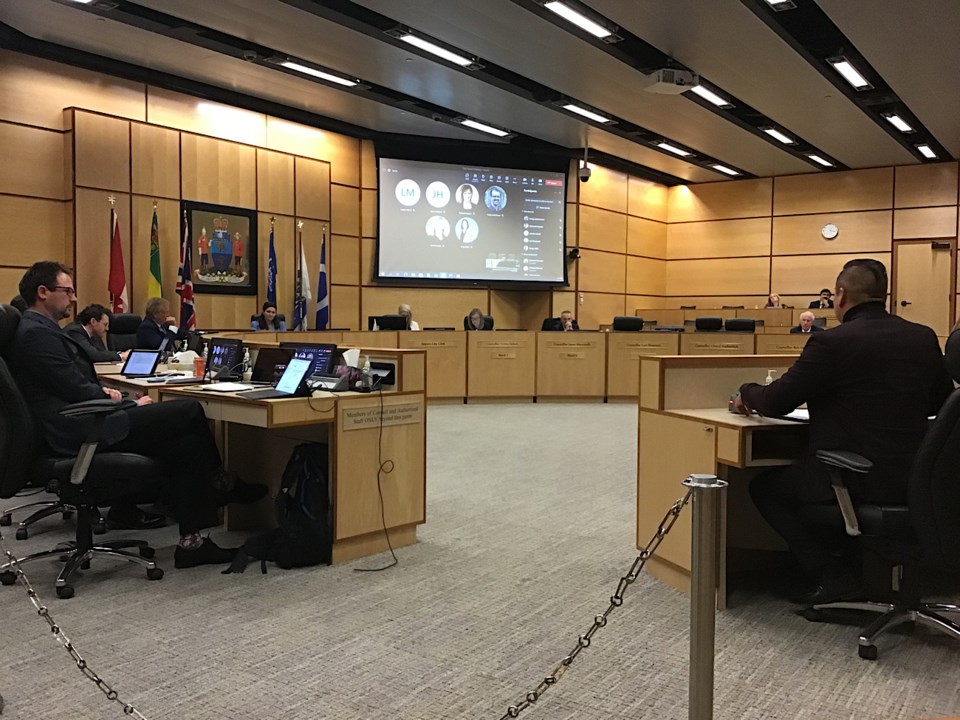REGINA - Regina City Council has given its approval to an Indigenous Procurement Policy, along with its ambitious targets for Indigenous procurement.
The policy had been discussed and approved the previous week at Executive Committee, and was passed at council Wednesday by a unanimous vote of 9-0. The key aspect of the policy is a provision which requires the City work towards a minimum of 20 per cent of City procurement contracts be held by Indigenous vendors.
The recommended minimum requirement was determined by considering the Indigenous population of Regina (10.3 per cent) and of Saskatchewan (17 per cent) per the Statistics Canada 2021 Census, and recognizing that both are growing.
According to numbers released by the City of Regina, they currently spend approximately $200 million on procurement per year, with 0.15 per cent procured through Indigenous business or approximately $300,000. At current procurement levels, the city states a minimum 20 per cent Indigenous procurement value would be at least $41 million worth of goods and services procured through Indigenous businesses.
The City of Regina said in a news release they have recently hired an Indigenous Procurement Partner to connect with stakeholders and provide support to Administration in the rollout of the policy.
The policy was developed through consultations with Indigenous groups and business. An Indigenous Procurement Advisory Committee had been set up to consult Indigenous groups on the issue, and it was through those discussions and the city's outreach to the Indigenous community that the 20 per cent target was set.
In speaking to reporters after the Feb. 8 council meeting, Mayor Sandra Masters said she was "really impressed with the way administration engaged probably for the first time meaningfully building that relationship and sharing the stories, and really being open minded to hear from the Indigenous Procurement Advisory Committee where these barriers exist, how they're based in history, and what they need from the city. I think that process had a profound effect on some of our employees. It really is the model for how we continue to figure out an Indigenous engagement piece."
At City Hall on Wednesday, councillors heard from delegations representing Indigenous business. One of them was Glen Pratt of George Gordon Developments Ltd. who spoke in support of the policy “on the basis of reconciliation, as well as economic reconciliation goal of a 20 per cent minimum.”
At the same time, Pratt noted his company did not support the federal procurement policy, which set a lower limit of five per cent. The reason was because “people wouldn’t really go beyond five per cent.”
Pratt also noted Indigenous people occupy 80 per cent of "negative" stats, including 80 per cent in the correctional system and 80 per cent of the homeless.
Pratt made it known he appreciated Indigenous groups being consulted on the city’s recommendation for a 20 per cent threshold. “To us, that’s meaningful economic procurement,” said Pratt.
He also acknowledged it would take a while to get to that threshold and take "capacity building" on their part, but said “we’ve already begun and we’re already achieving success in other industries.”
Council also heard from Thomas Benjoe of FHQ Developments, Nekaneet Urban Reserve, who said the “commitment the city is making to economic reconciliation, and the calls to action is significant and historic for our city, to be able to do this work is significant to showing leadership throughout our community.”
Benjoe also spoke favourably about the process used to set the threshold. The key difference this time, he said, “was having some good honest conversations ahead of time.“
“Being able to be a bit vulnerable in our discussion, and knowing we are going to have uncomfortable discussions as we go through engagement with community, with the business community, because there’s a lot of frustration that I know our Indigenous community has had to experience over the years trying to advocate and fight for these things.”
“I think this is a good news story all around,” said Councillor Andrew Stevens in his remarks at council Wednesday. He credited a “collaborative effort” to put the policy together.
What was noteworthy, he said, was “the amount of self-reflection and learning that went on through this process.”
Stevens also noted it has “created new benchmarks and standards of accountability for the City as well as City Council when it comes to engaging and empowering Indigenous businesses, workers, and peoples in Regina and the community.”
Stevens also assured the public they were not “creating a quota system” but “creating benchmarks for us to achieve and we’re not compromising a value for dollar approach.”






